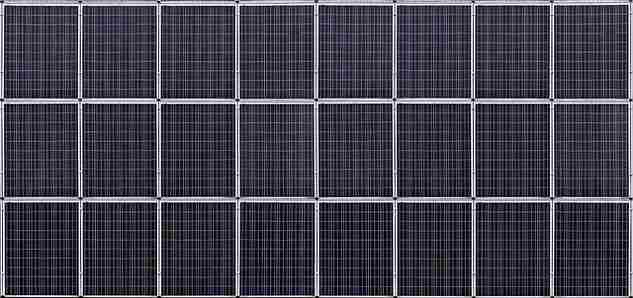What is solar energy?
Solar energy is radiant energy emitted by the Sun that can be used to convert into useful forms such as electricity or heat. It is a renewable and sustainable source of energy, as the Sun continually produces energy through nuclear fusion. What is solar energy?

Key aspects of solar energy:
Solar radiation:
Energy from the Sun reaches the Earth in the form of solar radiation, which includes visible light, ultraviolet light, and infrared radiation.
Types of solar energy technologies:
Photovoltaic (PV) systems: These systems use solar panels made of semiconductor materials (such as silicon) to convert sunlight directly into electricity. When sunlight strikes the PV cells, it excites electrons, creating an electric current. What is solar energy?
Solar thermal systems: These systems capture and concentrate sunlight to produce heat, which can be used directly for heating or to generate electricity via steam turbines. Examples include solar water heaters and concentrated solar power (CSP) systems.
Advantages of Solar Energy:
Renewable: Solar energy is abundant and will not run out as long as the sun is present. What is solar energy?
Environmentally friendly: It produces no greenhouse gases or pollutants during operation, making it a clean energy source.
Reduces Electricity Bills: By generating their own electricity, individuals and businesses can reduce their dependence on the grid and lower their energy costs.
Energy Independence: Using solar energy reduces dependence on fossil fuels and increases energy security. What is solar energy?
Applications of Solar Energy:
Residential Uses: Solar panels can be installed on rooftops to provide electricity to homes.
Commercial Uses: Businesses can use large solar installations to power their operations.
Utility-scale solar farms: These are large installations that generate electricity to supply the grid.
Remote and Off-Grid Applications: Solar energy can be used in remote areas without access to the grid, providing power to homes, schools, and medical facilities.
Challenges:
Gaps: Solar energy is not available at night and can be less effective on cloudy or rainy days.
Initial costs: The initial cost of installing solar panels and related infrastructure can be high, although prices are coming down.
Location requirements: Large-scale solar installations require significant land area. What is solar energy?
Why do you think the future of solar energy in India is bright?
The future of solar energy in India is promising for several reasons:
Abundant Sunshine
Geographical Advantage:
India receives abundant sunlight throughout the year, with many regions experiencing more than 300 sunny days annually. What is solar energy?
Government Initiatives and Policies
Supportive Government Policies:
The Government of India has been proactive in promoting solar energy through various policies and initiatives such as the National Solar Mission, which aims to achieve a significant increase in solar power capacity.
Incentives and Subsidies:
Subsidies, tax benefits and incentives for solar power installations encourage both residential and commercial adoption.
Economic Factors
Declining Cost:
The cost of solar panels and related technology is constantly decreasing, making it more affordable for a wide range of users.
Energy Demand:
India’s rapidly growing economy and population is resulting in increasing energy demand, which can be effectively met by solar energy. What is solar energy?
Environmental benefits
Pollution reduction:
Solar energy is a clean and renewable source that can help reduce dependence on fossil fuels, thereby reducing air pollution and greenhouse gas emissions.
Technological advancements
Technological improvements:
Advances in solar technology, including high-efficiency panels and better storage solutions, are making solar power more viable and efficient.
Rural electrification
Off-grid solutions:
Solar power is especially beneficial for rural and remote areas where extending the grid is challenging and costly. Solar power can provide a reliable source of electricity for these areas.
Large-scale projects
Solar parks and plants:
India is developing large-scale solar parks and plants, such as the Bhadla Solar Park in Rajasthan, which is the largest in the world. What is solar energy?
International support
Global partnerships:
India is collaborating with other countries and international organizations to advance its solar potential. Initiatives such as the International Solar Alliance (ISA) aim to promote cooperation and resource-sharing among solar-rich countries. What is solar energy?
Energy Security
Reducing Import Dependence:
By increasing solar power generation, India can reduce its dependence on imported fossil fuels, thereby enhancing its energy security and economic stability. What is solar energy?